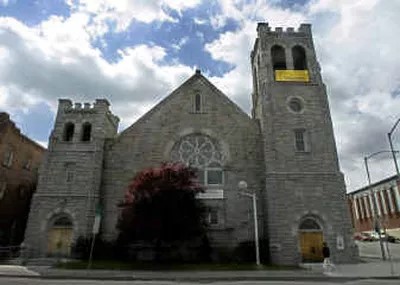Congregational Christian Churches

Introduction
Congregational Christian Churches are considered Protestant Churches who practice their religion with the Congregationalist influence. Each congregation is independent and controls its own affairs. They are financed by the contributions of members. Congregational Christian Churches merged with the Evangelical and Reformed Church and formed the United Church of Christ.
Congregational Christian Churches strive to know the will of God and walk in the ways of the Lord. They proclaim the Gospel to all mankind.
Congregational Christian Churches ordain their ministers and set the standards for training ministers. Women may be ordained in their churches, and the first woman was ordained in 1917.
History
Congregational Christian Churches were formed on a theory of union and came out of the Puritan Reformation movement in 1592. The early Congregationalists were called separatists.
The founder of the Congregational Christian Churches is John Wyclif, who was removed from teaching in the Roman Catholic Church. The Lollard movement, which came after John Wyclif, established the early Congregationalists, who followed the ideas of the Anabaptist theology and considered themselves as being a pure church. Adult conversion was an important element for a full membership in the church.
Other Congregationalists which came out of this movement were the Pilgrims of Plymouth and the Puritans of the Massachusetts Bay Colony in 1648. Their most influential leader was John Cotton. Their most influential theologian in America was Jonathan Edwards.
The history of the Congregational Christian Churches in America follows very closely the history of the Presbyterian Church, especially in New England. The Congregational Christian Churches have given way to the influences of Armenianism, Unitarianism, and Transcendentalism, however they still consider themselves as being a Christian Reformed Church.
Congregationalists founded some of the first colleges in New England; Harvard in 1636, Yale in 1701, and Dartmouth in 1769.
Belief
Congregational Christian Churches believe in God the Father, infinite in wisdom, goodness, and love.
They believe in Jesus Christ, the Son of God, who is their Lord and Savior. They believe Jesus lived and died for the salvation of man and rose again and lives forever more. They believe Jesus Christ is their only mediator. They believe in the Holy Spirit who takes from the things of Christ and reveals them to man, renewing, comforting, and inspiring the souls of men.
They believe the Bible is the authoritative witness to the Word of God.
Congregational Christian Churches believe in the freedom and responsibility of the individual soul and the right of private judgment. They hold to the self-government of each local congregation and independence of all spiritual control.
Congregational Christian Churches believe Baptism and the Lord’s Supper are the only two sacraments and were instituted by Christ. They do Baptize infants, usually by sprinkling. The Lord’s Supper is usually celebrated twice a month and is not given an essential part in the worship service.
Cite Article Source
MLA Style Citation:
Holstein, Joanne “Congregational Christian Churches:.” Becker Bible Studies Library Jan 2006.<https://guidedbiblestudies.com/?p=2658,>.
APA Style Citation:
Holstein, Joanne (2006, January) “Congregational Christian Churches:.” Becker Bible Studies Library. Retrieved from https://guidedbiblestudies.com/?p=2658,.
Chicago Style Citation:
Holstein, Joanne (2006) “Congregational Christian Churches:.” Becker Bible Studies Library (January), https://guidedbiblestudies.com/?p=2658, (accessed).


